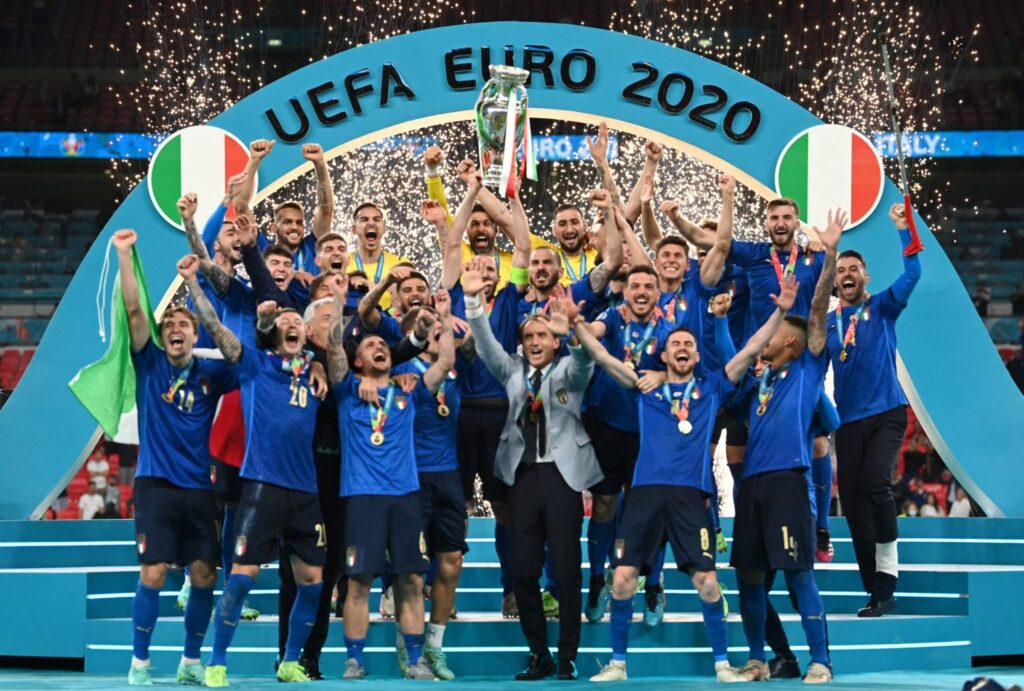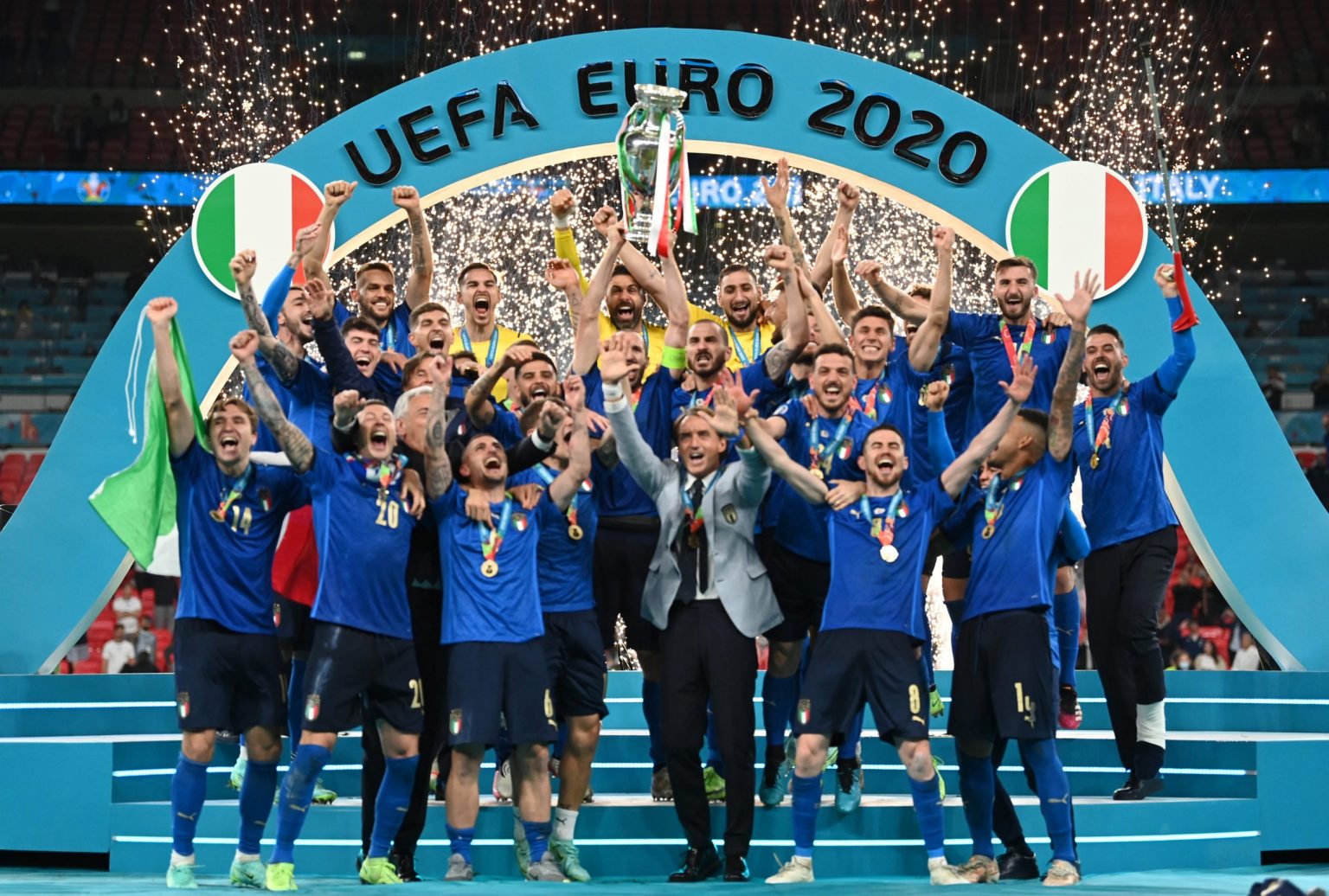
A Comprehensive History of the Euro Football Championship
The Euro Football Championship, officially known as the UEFA European Championship, stands as one of the most prestigious and fiercely contested football tournaments in the world. Second only to the FIFA World Cup in terms of international acclaim, the Euros have consistently delivered thrilling matches, unforgettable moments, and a showcase of Europe’s finest footballing talent. This article delves into the rich and captivating history of the Euro Football Championship, tracing its origins, highlighting its evolution, and celebrating its most iconic moments.
The Genesis of a Continental Competition
The seeds for the Euro Football Championship were sown in the 1920s, with visionary figures like Henri Delaunay, the then-General Secretary of the French Football Federation, advocating for a pan-European tournament. Delaunay’s initial proposals, however, faced considerable resistance due to logistical challenges and the prevailing focus on national leagues and the World Cup. It wasn’t until after World War II that the idea regained momentum, driven by a desire to foster unity and cooperation across a war-torn continent.
Sadly, Delaunay passed away in 1955, but his vision lived on. In 1958, the first edition of the European Nations’ Cup (the tournament’s original name) was officially launched. The inaugural tournament in 1960, hosted by France, featured only four teams in the final stage: the Soviet Union, Yugoslavia, Czechoslovakia, and France. The Soviet Union emerged victorious, defeating Yugoslavia 2-1 in a thrilling final held in Paris. This marked the beginning of what would become a legendary competition.
Early Years and Format Changes
The early editions of the European Nations’ Cup saw significant variations in format and participation. Qualification rounds involved home-and-away ties, often stretching over several years. The final tournament remained relatively small, with only four teams competing until 1980. The 1964 tournament, hosted by Spain, saw the home nation triumph over the defending champions, the Soviet Union. Italy hosted and won the 1968 edition, defeating Yugoslavia in a replay after the first match ended in a draw. The 1972 tournament in Belgium saw West Germany dominate, securing their first European Championship title with a commanding victory over the Soviet Union.
A key turning point arrived in 1980 when the tournament expanded to include eight teams, marking a significant step towards its modern format. Italy again hosted, and West Germany continued their dominance, defeating Belgium in the final. This expansion provided a broader platform for European nations to showcase their talent and increased the overall competitiveness of the tournament.
The Rise of Modern Euro Football Championship
The 1984 edition, hosted by France, is remembered for the brilliance of Michel Platini, who captained the French team to victory on home soil. Platini’s record-breaking nine goals in a single tournament cemented his place as a Euro legend. The Netherlands, led by the iconic trio of Ruud Gullit, Marco van Basten, and Frank Rijkaard, won the 1988 tournament in West Germany, defeating the Soviet Union in the final. This victory signaled the arrival of a new era of Dutch footballing prowess.
The 1992 tournament in Sweden produced one of the biggest shocks in Euro Football Championship history. Denmark, who had not originally qualified but were granted entry after Yugoslavia was excluded due to the Balkan Wars, defied all expectations to win the tournament. Their improbable victory over Germany in the final remains a cherished underdog story.
Expansion and Global Appeal
The Euro Football Championship continued to evolve in the 1990s and 2000s. In 1996, hosted by England, the tournament expanded to 16 teams, further enhancing its global appeal and competitiveness. Germany won their third European Championship title, defeating the Czech Republic in a golden goal thriller. The 2000 tournament, co-hosted by Belgium and the Netherlands, saw France secure their second title, defeating Italy in a dramatic final decided by a golden goal.
Euro 2004 in Portugal witnessed another major upset, as Greece, led by coach Otto Rehhagel, defied all odds to win the tournament. Their defensive solidity and tactical discipline proved too difficult for their opponents to overcome, culminating in a stunning victory over Portugal in the final. [See also: Greatest Upsets in Football History]
Spain dominated the late 2000s and early 2010s, winning Euro 2008 in Austria and Switzerland and Euro 2012 in Poland and Ukraine. Their tiki-taka style of play, characterized by intricate passing and possession-based football, revolutionized the game and established Spain as one of the greatest international teams of all time. Euro 2008 saw Spain defeat Germany in the final, while Euro 2012 saw them comprehensively beat Italy.
Recent Editions and Future Prospects
Euro 2016, hosted by France, saw Portugal, led by Cristiano Ronaldo, win their first major international trophy, defeating France in the final. This victory marked a significant achievement for Portuguese football and cemented Ronaldo’s status as a global icon. The tournament also featured the debut of several smaller nations, showcasing the growing diversity and competitiveness of European football. Euro Football Championship has become a celebration of the sport across the continent.
Euro 2020, played in 2021 due to the COVID-19 pandemic, was a unique edition held across multiple cities in Europe. Italy emerged as the champions, defeating England in a penalty shootout at Wembley Stadium. The tournament was marked by thrilling matches, unexpected results, and a renewed sense of unity and celebration after a challenging period for the world.
Looking ahead, the future of the Euro Football Championship appears bright. The tournament continues to attract massive global viewership and generates significant revenue for UEFA and participating nations. The increasing competitiveness of European football ensures that future editions will be filled with drama, excitement, and unforgettable moments. The Euro Football Championship remains a testament to the enduring power and appeal of football as a unifying force across Europe and beyond.
Key Moments and Memorable Matches
Throughout its history, the Euro Football Championship has produced countless memorable moments and iconic matches. From Antonín Panenka’s audacious penalty in the 1976 final to Marco van Basten’s stunning volley in the 1988 final, these moments have become etched in footballing folklore. The dramatic semi-final between England and Germany at Euro 96, decided by a penalty shootout, remains a defining moment in English football history.
The Euro Football Championship has also served as a platform for emerging talents to showcase their skills on the international stage. Players like Cristiano Ronaldo, Michel Platini, and Xavi Hernández have all used the tournament to establish themselves as global superstars. The competition’s ability to unearth and celebrate new talent is a testament to its enduring relevance and appeal.
The Economic Impact of the Euro Football Championship
The Euro Football Championship has a significant economic impact on host nations and participating countries. The tournament generates billions of euros in revenue through ticket sales, broadcasting rights, sponsorship deals, and tourism. Host cities benefit from infrastructure improvements, increased tourism, and a boost to local businesses. The tournament also creates jobs and stimulates economic growth across various sectors.
Participating nations also benefit from the tournament’s economic impact. Increased tourism, merchandise sales, and national pride contribute to a positive economic environment. The tournament also provides a platform for nations to showcase their culture and attract foreign investment. [See also: The Financial Impact of Major Sporting Events]
The Euro Football Championship: A Legacy of Excellence
In conclusion, the Euro Football Championship boasts a rich and captivating history, filled with unforgettable moments, iconic players, and dramatic matches. From its humble beginnings as the European Nations’ Cup to its current status as one of the world’s most prestigious football tournaments, the Euros have consistently delivered excitement, entertainment, and a celebration of European footballing excellence. The Euro Football Championship continues to evolve and adapt, ensuring its enduring relevance and appeal for generations to come. The enduring legacy of the Euro Football Championship is a testament to the power of football to unite, inspire, and captivate audiences around the world.
The spirit of competition, the thrill of victory, and the heartbreak of defeat are all woven into the fabric of the Euro Football Championship. As the tournament continues to evolve, one thing remains certain: the Euros will always be a stage for the world’s best footballers to showcase their talent, and for fans to witness moments of magic that will last a lifetime. The Euro Football Championship is more than just a game; it is a celebration of European culture, unity, and passion for the beautiful game. The Euro Football Championship is an event that transcends sport, becoming a cultural phenomenon that captivates the world.
